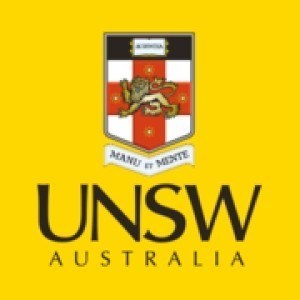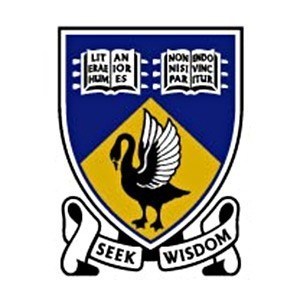The Bachelor of Interpreting and Translation at Western Sydney University is a comprehensive undergraduate degree designed to equip students with the essential skills and knowledge required to excel in the dynamic fields of language interpretation and translation. This program offers a rigorous curriculum that emphasizes practical language proficiency, cultural awareness, and professional ethical standards, preparing graduates for diverse careers within the linguistic services industry. Throughout the course, students will engage in advanced language studies across multiple disciplines, including business, legal, medical, and diplomatic contexts, ensuring they are well-versed in specialized terminology and industry-specific communication conventions.
In addition to core linguistic competencies, the program focuses on developing strong interpreting and translation skills through hands-on practice, simulated real-world scenarios, and industry placements. Students will learn about the latest technological tools and software used in the field, gaining experience with computer-assisted translation (CAT) tools and remote interpreting platforms. The curriculum also covers key issues such as intercultural communication, professionalism, and ethics, enabling graduates to provide accurate, culturally sensitive, and ethically sound interpreting and translation services.
Western Sydney University’s Bachelor of Interpreting and Translation is designed in consultation with industry professionals and accreditation bodies to ensure relevance and employability. Graduates of this program will be prepared for a variety of career opportunities, including interpreter, translator, localization specialist, and roles within government agencies, healthcare, legal firms, business, and international organizations. The university’s strong industry links, experienced faculty, and focus on practical skills development make this program an excellent choice for students passionate about languages and committed to making a meaningful impact through effective communication across cultures.
National Accreditation Authority for Translators and Interpreters (NAATI) at the Expert level
- Bachelor or postgraduate degree (any)
- Native or near native proficiency in a Few of the following languages: Arabic, Japanese, Mandarin, Spanish
The Western Sydney University offers various financing options for students enrolled in the Interpreting and Translation program. Domestic students can access a range of government financial assistance schemes, including FEE-HELP, which is a loan program that assists eligible Commonwealth supported students to pay their tuition fees. To qualify for FEE-HELP, students need to satisfy specific residency and eligibility criteria, including being an Australian citizen or holder of an eligible visa and meeting the criteria for study load and other requirements. The loan amount is repaid through the Australian taxation system once the student's income exceeds the compulsory repayment threshold, and the repayment rate varies depending on income levels.
International students enrolled in the program are expected to cover their tuition fees upfront or through private financial arrangements. Western Sydney University offers competitive tuition rates for international students, and some students may be eligible for scholarships or financial aid programs that can significantly reduce the financial burden. These scholarships are typically merit-based or need-based and are awarded on a competitive basis, often requiring applicants to demonstrate academic excellence, leadership qualities, or financial need.
In addition to government and institutional scholarships, students may explore external sources of funding such as private grants, sponsorships, and educational loans from banks. The university's financial services team provides guidance and support to students seeking financial assistance, helping them understand repayment obligations, budget planning, and options for part-time work during their studies. International students also have the opportunity to work part-time under specific visa conditions, which can help offset living expenses.
Western Sydney University offers flexible payment plans that allow students to manage their tuition fees over the duration of their studies, easing the financial burden and providing more accessibility to the program. Furthermore, student support services are available to provide financial counseling, helping students develop budgets and manage expenses effectively. Overall, the university is committed to assisting students in financing their education through diverse options, ensuring that financial barriers do not prevent talented individuals from pursuing their careers in interpreting and translation.
The Bachelor of Interpreting and Translation at Western Sydney University is a comprehensive undergraduate program designed to prepare students for professional careers in language services. This program focuses on developing advanced interpreting and translation skills across various languages, equipping students with the ability to facilitate effective communication in multicultural and multilingual contexts. The curriculum covers a broad range of topics including linguistics, cultural competence, ethics in translation and interpreting, and specialized terminology in fields such as legal, medical, and technical domains. Students have opportunities for practical training through simulated interpreting assignments, internships, and industry placements, ensuring they gain real-world experience relevant to their future careers. The program emphasizes bilingual proficiency, critical thinking, and problem-solving skills necessary for high-quality interpretation and translation work. Graduates are prepared to work in diverse settings, such as governmental agencies, international organizations, healthcare, legal systems, and private sector companies. Western Sydney University also provides state-of-the-art facilities and resources to support learning, including access to professional interpretive equipment and language labs. The program may offer specializations or elective courses that allow students to focus on specific languages or sectors, enhancing their employability in a competitive job market. Upon completion, graduates receive a recognized qualification that qualifies them for registration or certification in certain regions, depending on the local regulatory requirements. Overall, this degree aims to produce capable, ethically responsible, and culturally sensitive interpreters and translators who can serve as vital links in global communication networks.





